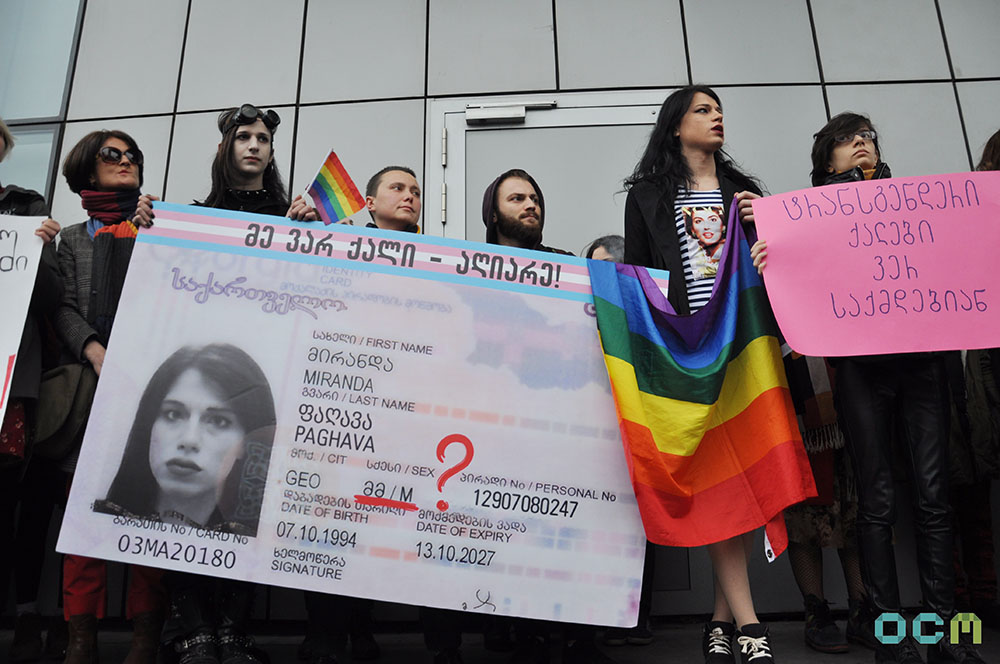
A transgender woman has set herself on fire in front of Tbilisi City Hall during a protest against the government ‘negligence’ in the face of the COVID-19 outbreak.
The incident occurred as several transgender women gathered in front of Tbilisi City Hall to protest a lack of support from the government during the novel coronavirus outbreak.
During the small rally on Thursday evening in front of the City Hall building, Madona Kiparoidze, one of the protesting women, set herself on fire. Police officers managed to strip off her flaming jacket before detaining her.
Kiparoidze, who communicated with others after the incident and did not seem to have sustained any life-threatening injuries, was later transported to a hospital by ambulance.
‘I am a transgender woman, and I’m setting myself on fire because the Georgian state doesn’t care about me’, Kiparoidze shouted after being detained.
‘We can’t even pay for our rent. What can we do?’, another protester told TV Pirveli after the incident.
Tamaz Sozashvili, one of the founders of Tbilisi Pride, tweeted out soon after that the incident occurred because of the government’s ‘immobility and ignorance’ towards transgender people during the pandemic.
‘Trans people are among [the] most vulnerable groups in Georgia’, he said.
Today, trans woman tried to commit a sucide in front of #Tbilisi City Hall to protest @GovernmentGeo‘s immobility and ignorance towards them during #Covid19 crisis.
Trans people are among most vulnerable groups in #Georgia@kakhakala @HumanRightsGeo#HumanRights #LGBT #Equality pic.twitter.com/X9YEKkaTN6
— Tamaz Sozashvili (@TamazSozashvili) April 30, 2020
Transgender rights and COVID-19
Georgian transgender rights activists and allies have become particularly concerned about the lack of access to services and basic needs of transgender people in Georgia during the ongoing nationwide state of emergency.
As many in the transgender community are involved in sex work due to labour market discrimination and lack of legal gender recognition, they have been particularly hard hit by the curfew and mandatory social distancing measures.
Despite demands from the community, the Georgian government continues to refuse to grant identification that recognises trans peoples’ gender identity, thereby locking them out of a majority of jobs and many social services.

[Read more on OC Media: No place for transgender people in Georgia’s labour market]
Members of the trans community, alongside allies and activists, have urged the public to donate to help support those hardest hit financially. To this end, a number of campaigns to help cover rent and other necessities have been started on Facebook.
On 20 March, the Tbilisi-based Women’s Initiatives Supporting Group (WISG) appealed to the Georgian government to consider the needs of women engaged in sex work, ‘especially transgender women’ as they called on citizens to observe stay-at-home and social distancing rules.
‘They cannot afford to meet their basic needs under the conditions of social distancing due to the specificity of their work’, WISG’s statement reads.
On 5 February, queer rights group the Equality Movement reported an attack on a transgender woman during her night shift in a Spar supermarket. They reported the victim saying that a male attacker had used transphobic slurs prior to the attack.









